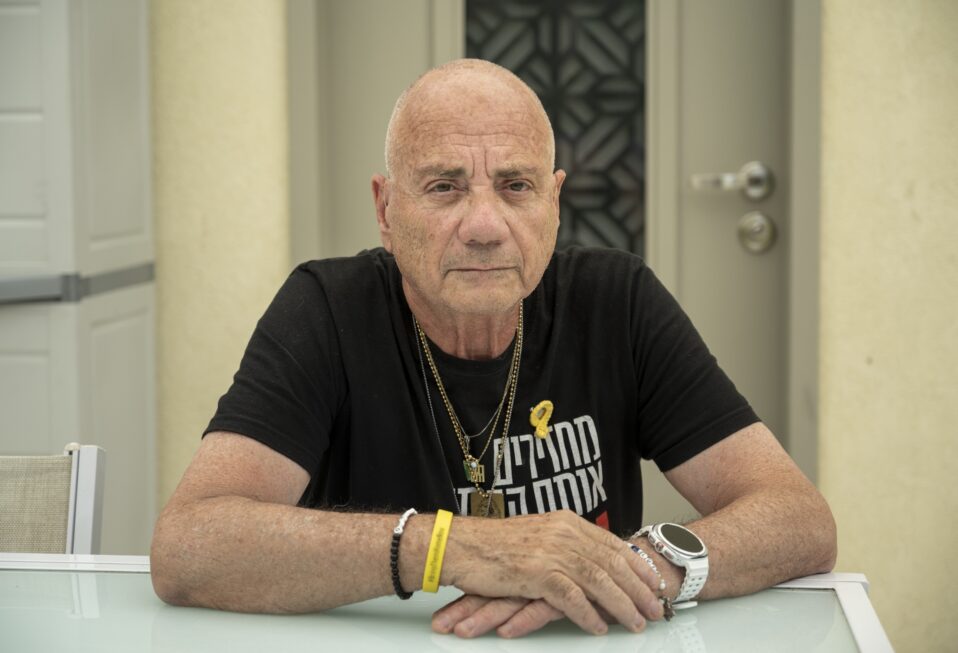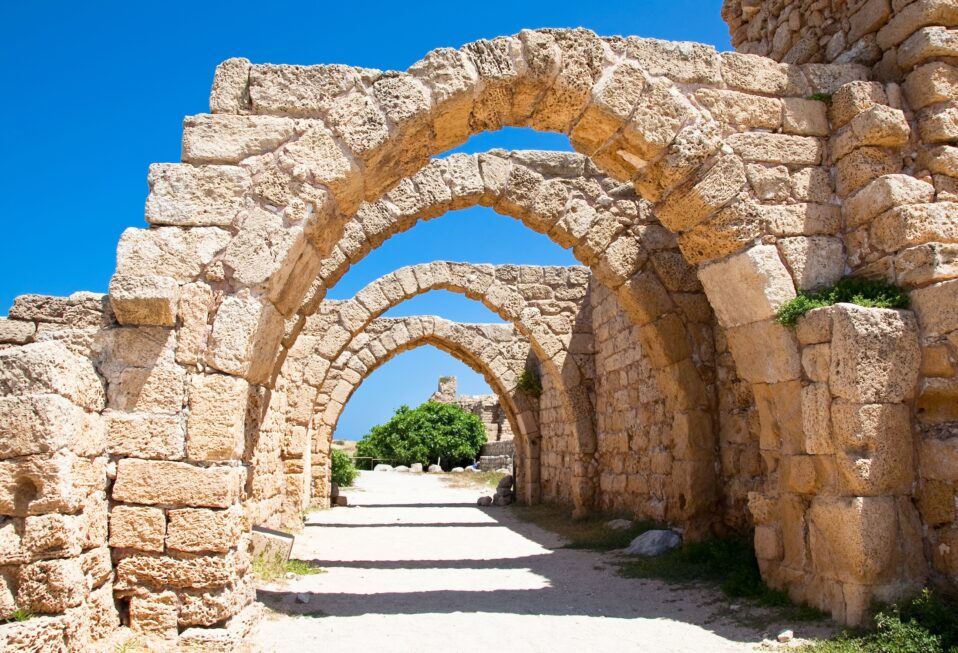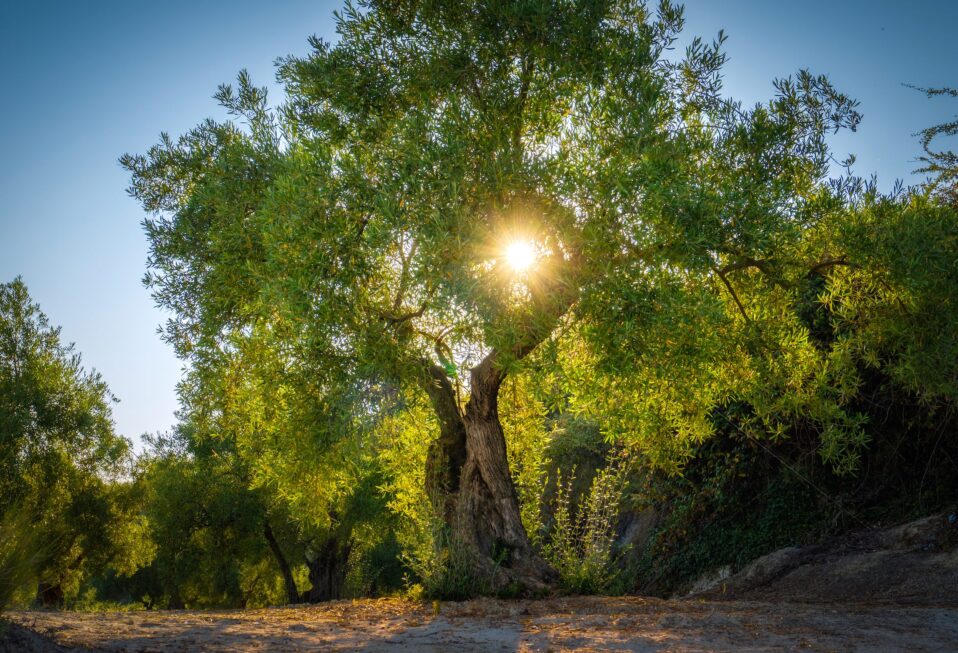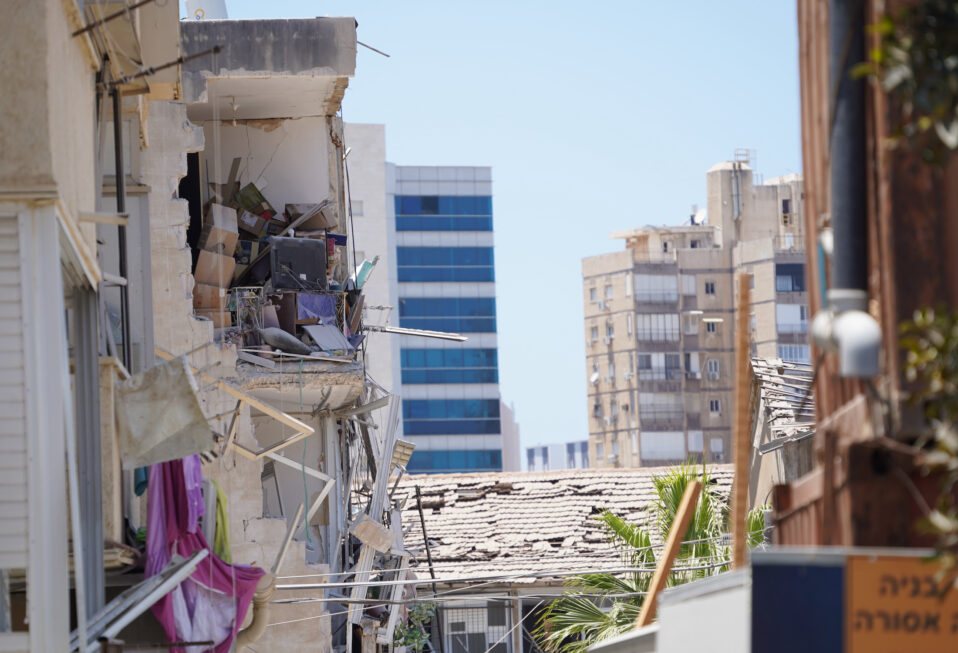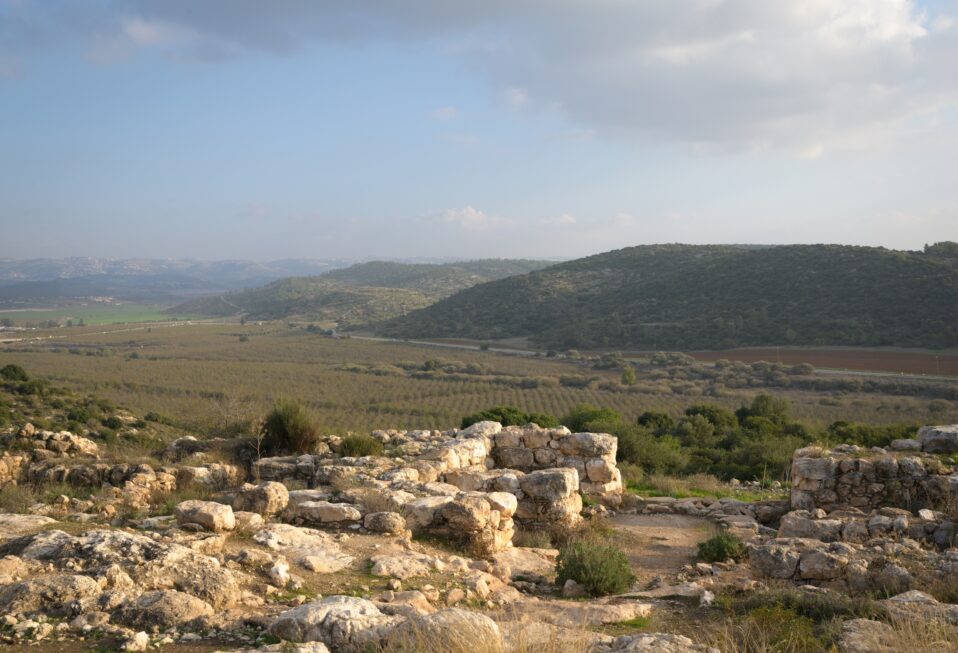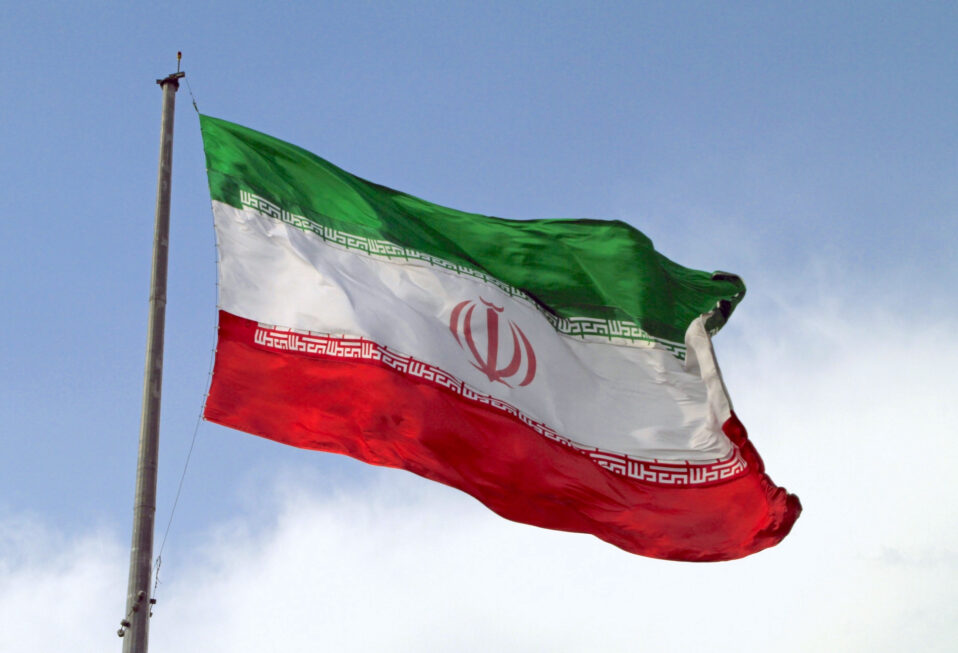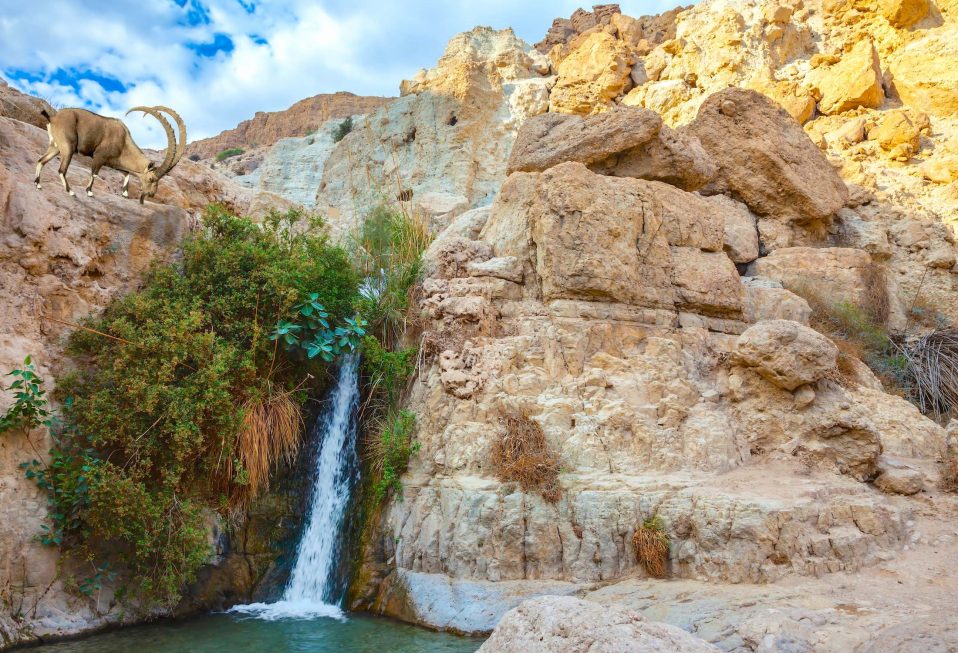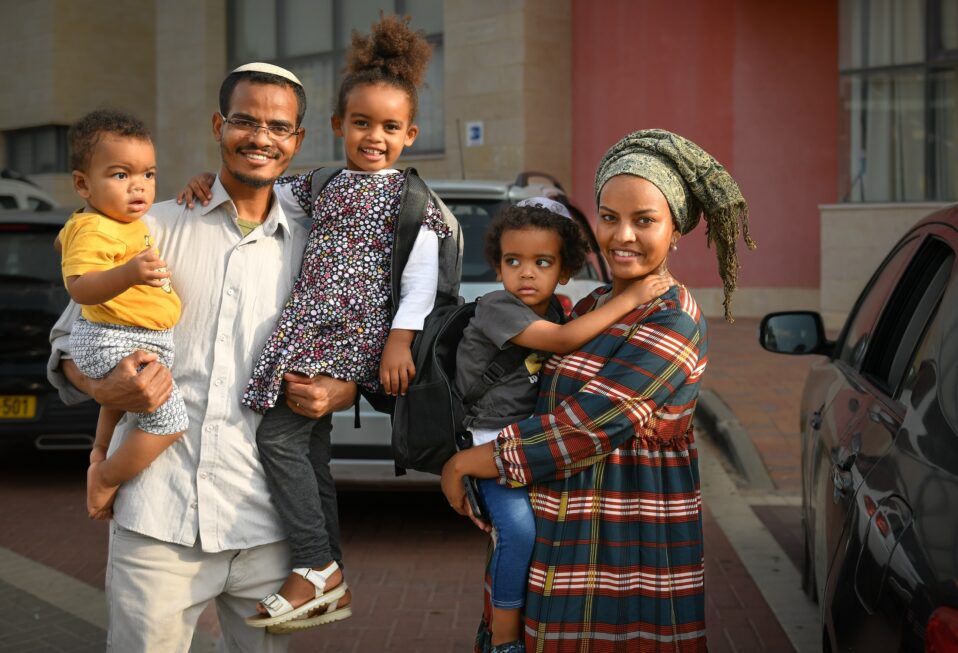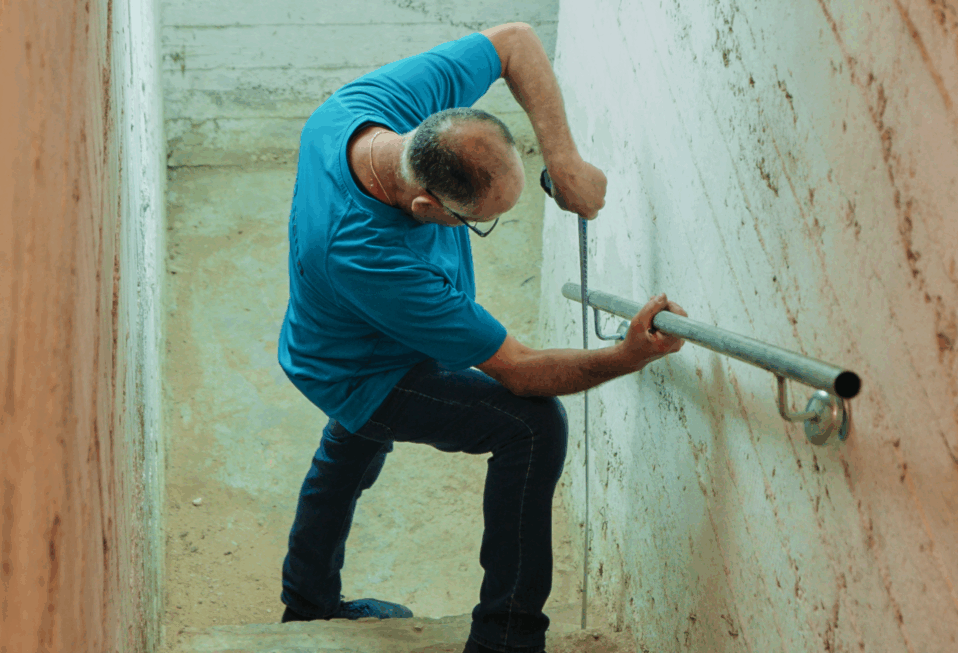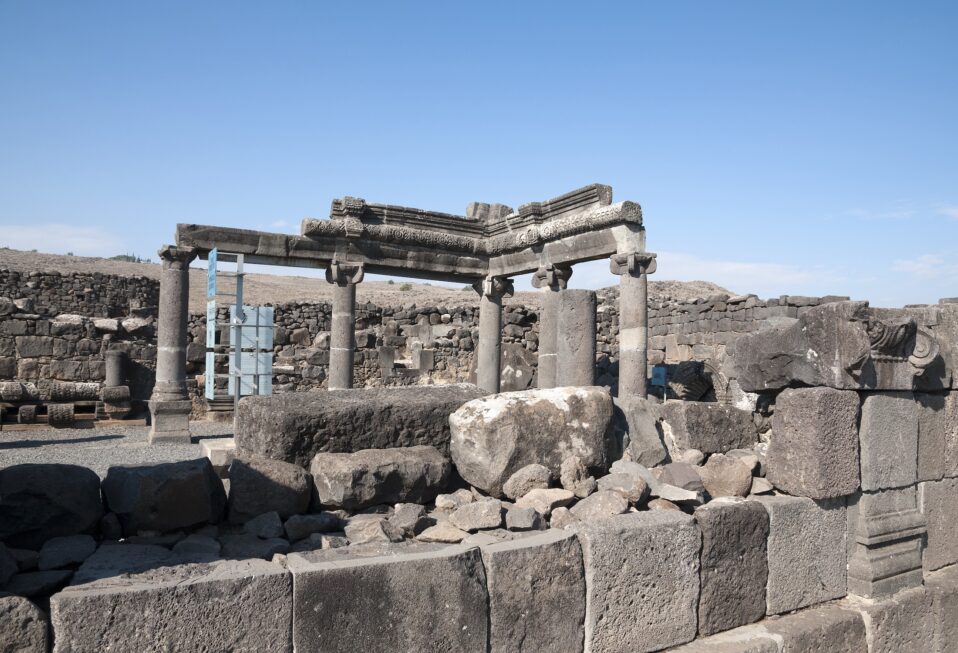By Arlene Bridges Samuels
We are witnessing world and biblical history in the making. Like David bravely confronting Goliath in 1012 B.C., Israel in A.D. 2025 is crushing the world’s deadly threat from the Islamic Regime—3,037 years later. Despite Iran deliberately directing its ballistic missiles toward Israel’s civilians, Jews are incredibly resilient. Yet they are painfully aware of the incredibly high stakes of victory amid deaths, injuries, and frequent dashes to bomb shelters.
Israel has been fiercely engaged in a defensive war since October 7, 2023—fighting not only for its own existence but also on the frontlines for the United States and the free world. The rallying cry Am Yisrael Chai (“The people of Israel live”) expresses gratitude to God for His eternal, redemptive plans enacted through the Jewish people.
Today, via worldwide media, millions of people on planet Earth have a front-row seat to Israel’s Operation Rising Lion—the daring military operation targeting Iran’s military and nuclear strength. However, Marziyeh (Marzi) Amirizadeh, born and growing up amid the oppressive Islamic Regime for 33 years, suffered in another kind of front-row seat in 2009. After their radical conversion to Jesus, Marziyeh and a friend ran a covert operation giving out 20,000 Bibles. They were spied on by the Regime’s authorities, then arrested—and brutally forced into Evin Prison, one of the worst in the world.
Sentenced to death by hanging, Marzi underwent punishing traumas before being miraculously released nine months later. She legally immigrated to the United States and obtained her American citizenship. Years later, she fulfilled a long-held hope by visiting Israel in 2023 for the first time. She has now visited Israel three times. Her most recent trip last fall was the inaugural tour sponsored by Jonathan Feldstein, founder of the Genesis 123 Foundation, and Marzi’s NewPersia.org.
These two remarkable people created the organization Root & Branch, which offers a meaningful way for Christians to connect with Israel. Jonathan, an Israeli modern Orthodox Jewish father and grandfather, and Marzi, a Christian author and speaker, pioneered this specialized tour. It combines an agricultural pilgrimage to harvest olives with spiritually uplifting activities along the Gaza border and interacting with the IDF.
Marzi’s life reflects her mission to promote understanding and freedom for her Iranian people and to stand firmly with Israel. A beautiful Iranian American, she loves her “Jewish Savior’s homeland.” I invite you to read about and connect with my remarkable friend at www.NewPersia.org
Hers is a significant voice, now more than ever during Israel’s Operation Rising Lion. In 1979, when the apocalyptic Ayatollahs ousted the government of Reza Pahlavi, the Shah of Iran, the new government’s malicious nature expanded into a behemoth of worldwide terror that is more obvious now than ever before.
Marzi is a sought-after speaker/author for interviews in Israel, America, and beyond. Sharing a few of her firsthand perspectives will illuminate both the Islamic Regime’s evil mindset and the hopes of the 90 million inhabitants still longing for freedom.
In a 2024 interview with Adam Eliyahu Berkowitz at Israel365, Marzi explains that prior to 1979, “Iran as a country was very pro-Israel, a big ally. Iran was one of the most advanced, enlightened westernized countries.” She added, “Iran is not an Arab country. It is Persian with Farsi as the language, not Arabic.” Iranians look to ancient “King Cyrus as their father” and “believe that their country has been taken hostage.”
Ezra 1:1-2 is a magnificent verse about Persians and Jews! In the first year of Cyrus king of Persia, the word of the LORD spoken through Jeremiah was fulfilled. The LORD put it into the mind of King Cyrus to issue a proclamation throughout his entire kingdom and to put it in writing: This is what King Cyrus of Persia says: “The LORD, the God of heaven, has given me all the kingdoms of the earth and has appointed me to build Him a house at Jerusalem in Judah.”
Marzi also addressed the Iranian hunger for learning about Jesus. During the years that she gave out 20,000 Bibles, she engaged in thousands of conversations about Jesus. Iran is considered the fasted-growing Christian community in the world despite the hard-line Islamic Regime’s ban on Persian Bibles, murdering pastors, and closing churches. In the last 20 years, more Iranians became Christians than in the previous 13 centuries.
On one of her X posts, Marzi shared short videos from Iranians that show the true nature of the Iranian Revolutionary Guard Corps (IRGC) terrorists. They are haphazardly bombing buildings in Tehran to kill innocent civilians. A building in Tehran’s Narmak location is a recent example. The IRGC’s goal is to blame Israel, whose policy is the exact opposite.
The IDF targets only terrorist leaders, staff, and operatives. When Israel must eliminate known terrorists hiding on purpose in civilian neighborhoods, their policy is to notify civilians directing them to leave. Marzi warns, “Don’t be deceived by fake media.” She points out that the Regime knows how to play the role of victim and sell its lies to the world.
Marzi’s Facebook posts hold many perspectives. In one post Marzi suggests that a regime change with Iran means “the elimination of the supreme Leader of Iran, Ali Khamenei and his four sons.” At this writing, with fast-moving news unfolding, Vladimir Putin has reportedly offered Ali Khamenei asylum in Russia.
In another post, Marzi shared a video from an Iranian man driving past the Imam Hasan military base in Kermanshah, Iran. He filmed it while the Israeli Air Force was destroying the base—and “praised PM Netanyahu for his bravery.” Marzi made it known in another post that the Islamic regime “has shut down the internet to stop Iranians from sending films and true news outside in order to spread their own lies and propagandas.”
She could not contact any of her friends in Iran.
Although Elon Musk has activated Starlink for Iran, confirming that “The beams are on,” it is not yet accessible to everyone. The government opposes Starlink’s presence, and the logistical need for satellite dishes and ground terminals make access inconsistent. Hopefully, Starlink connectivity will grow more available with time.
A June 14 video showed Iranian people dancing in the streets—a form of civil disobedience and protest—while leaving the major cities after last week’s Israeli airstrike campaign began. Marzi commented, “They are celebrating the elimination of the evil Islamic regime and its followers.”
Let us join with prayers that the celebrations will multiply across Iran, where Jews and Persians will once again revitalize their friendships in freedom, shalom, and joy!
Prayer Points:
- Pray thanking God for the flawless skill of the Israeli and American air forces.
- Pray for Mossad implementing a complex plan on Iranian soil.
- Pray for Iranian and Israeli civilians seeking the end of Iranian terror.
- Pray for a quick and successful end for Operation Rising Lion.
Arlene Bridges Samuels is the weekly feature columnist for CBN Israel since 2020. Working on the staff of the American Israel Public Affairs Committee (AIPAC) as their SE Regional Outreach Director for nine years, International Christian Embassy Jerusalem USA engaged her as the Leadership Outreach Director part-time for their project American Christian Leaders for Israel. Arlene is an author at The Blogs-Times of Israel, is published at AllIsrael.com and The Jerusalem Connection, and has traveled to Israel since 1990. By invitation, she attends Israel’s Government Press Office Christian Media Summits as part of Christian media worldwide. In 2024, Arlene and her husband Paul co-authored Mental Health Meltdown: Illuminating the Voices of Bipolar and Other Mental Illnesses. www.TheMentalHealthMeltdown.com.


